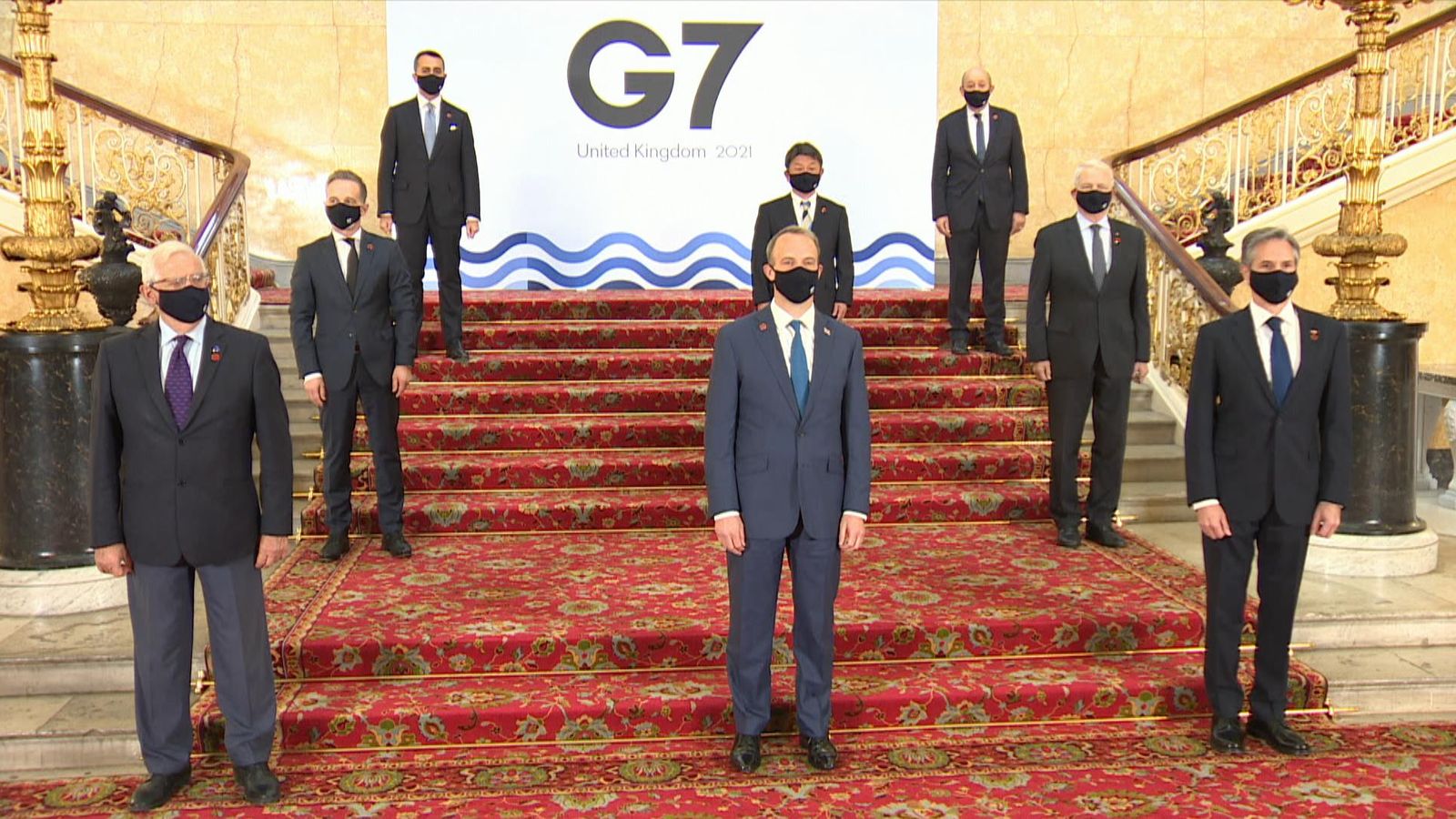Morteza Makki, in an interview with the website of the Strategic Council on Foreign Relations, added: The session of foreign ministers in London was somehow for preparing the agenda for the G7 summit.
According to the expert, the most important issue raised at the summit was the far-reaching implications of the Coronavirus pandemic, which has had many economic consequences for the growth and development of countries, especially the G7 states.
The expert on Europe affairs continued: Another issue that was very prominent at the summit was the issue of restraining the power of China and Russia.
He explained: Given the rise of the Democrats to power in the United States, the rest of the members of Group of Seven at the recent summit have been more in tune with US militant and racist policies. Donald Trump’s positions and views over the past four years have been as such that members of the Group of Seven have sought to distance themselves from Trump’s policies, and for this reason the group’s meetings during the Trump term have had little effect in practice; but at the recent summit, we were witness to more cooperation and support from members of the Group of Seven, or the bloc of Western developed countries.
Noting that the United States is trying to cooperate with other G7 countries as part of its policy of containment of China and later control of Russia on its borders, Makki added: It is somehow felt that Western governments, especially European countries like Germany and France, Britain, Italy and the European Union have common concerns with the United States.
He continued: But at the same time, the common interests and geographical location of European governments in the neighborhood of Russia and extensive cooperation with China have prevented them from fully complying with US aggressive policies against China and Russia.
The expert on Europe affairs, noting that European governments are trying to play a balancing role in the US policies with China and Russia said: In fact, their goal is to get good concessions from Moscow and Beijing on the one hand, and to align with the United States as part of their cooperation with China and Russia to prevent the two countries from expanding their influence as serious threats of the 21st century.
Given that in the US National Security Strategy, the Islamic Republic of Iran is the fourth priority, Makki stressed: We are now witnessing changes in the US policy toward Iran and the revival of the Joint Comprehensive Plan of Action (JCPOA).
Regarding the European policy towards the JCPOA and its alignment with Washington, he said: Although European governments have many common interests with some Arab countries in the region, they also have to work with the United States to revive the JCPOA and pursue a policy of containment of Iran while cooperating with the Islamic Republic of Iran.
Noting that in this round of negotiations on the revival of the JCPOA in Vienna, unlike in previous periods, we rarely saw the excessive proposals of Western governments towards Iran, Maki stressed: Earlier, some European countries, such as France and Germany, had made maximum demands with regard to the revival of the JCPOA, such as expanding the JCPOA to the missile issues and regional influence, or even participation of countries such as Saudi Arabia in the talks on the JCPOA, but in recent weeks, due to the Islamic Republic of Iran’s firm stance, we have seen fewer such requests from the European governments.
According to the expert, almost all parties to the JCPOA speak of optimism and a bright future for its revival.
In conclusion, Mackie explained about the position of the Group of Seven on the world arena and said: The Group of Seven, according to the philosophy of this group, which was formed in the 1970s among the Western industrialized countries, no longer has the former position and the Americans, with regard to the change in the international system in the 1970s, are trying to redefine the nature of the Group of Seven and turn the group into a front to contain China.










0 Comments